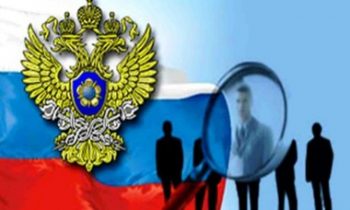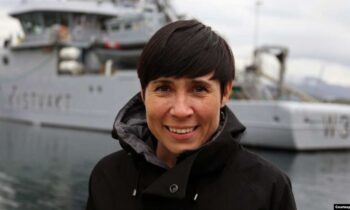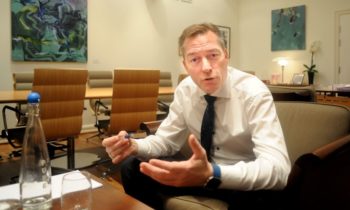The “Ministerial to Promote a Future of Peace and Security in the Middle East” is set for February 13-14 at the instigation of the US and Poland. During a briefing about the event on Monday, officials from both sides were keen to stress the discussion would tackle many of the challenges facing the region.
A senior US official told reporters that Iran would not be the sole focus of the conference.
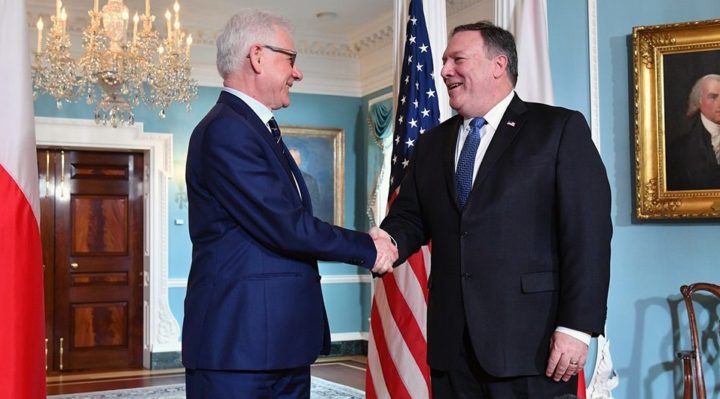
“It’s important to underscore that this is not an anti-Iran meeting or coalition-building exercise,” the official said.”From the start, this ministerial has been focused on exploring a range of issues important to the region’s security and prosperity.”
“We are going to discuss Iran because it’s not possible to have any conversation about the Middle East without having some reference to Iran,” he added. “But that doesn’t make it an Iran ministerial, and it never has.
“We have a very comprehensive agenda. It’s been that way from the beginning. We’re very pleased with the responses we’ve been getting from around the world.”
Washington is seeking the establishment of working groups in the aftermath of the Warsaw discussions that would follow-up on policy priorities identified by the participants. “We want to get some momentum coming out of Warsaw,” he said.
Below is a full rush transcript of the press conference by U.S. Senior Administration Official and Polish Senior Official.
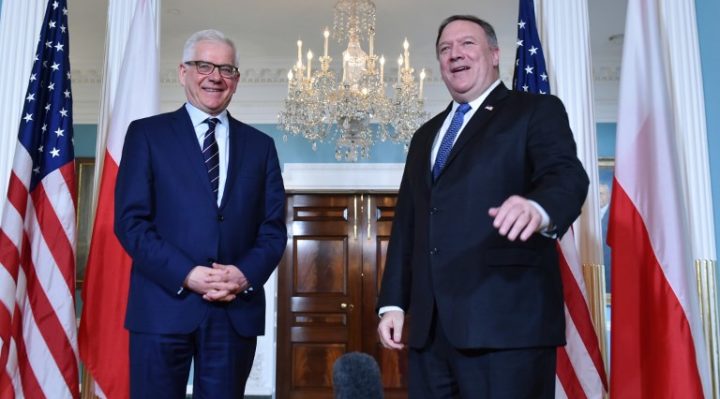
Polish Senior Official 1: I want to begin by briefly discussing the upcoming ministerial in Warsaw this February, and then turn it over to my colleagues for their comments. We will then open the floor for questions.
As you know, Polish Minister of Foreign Affairs Jacek Czaputowicz and U.S. Secretary of State Mike Pompeo are hosting the Ministerial to Promote a Future of Peace and Security in the Middle East. The event will be held in Warsaw on February 13th through 14th beginning with a welcome dinner at the Royal Palace on Wednesday and continuing the following day with dynamic discussions at the PGE National Stadium.
We are very pleased to be hosting this event jointly with the United States. This year we are celebrating 100 years of strong diplomatic relations and the bond between our two countries is stronger than ever.
This ministerial is a forum for countries concerned about instability in the Middle East to share their assessments and offer ideas on a better way forward. The agenda very clearly underscores this objective. It includes sessions on regional crises and international responses, missile development and proliferation, cyber and emerging threats, and terrorism and illicit finance. It will also include specific discussions on Syria and Yemen.
Countries across the globe have been invited to attend. The feedback we have received is very positive. It is our strong sense that countries are eager to engage in constructive dialogue to address critical issues in the region.
Both the United States and Poland understand that every country attending will have different perspectives. At times such views may even conflict with each other. We see this as a value-added proposition. We want to bring together countries with an interest in stability to share their different views so we can begin to think about old and recurring problems in new ways.
The agenda has been structured in a way that provides for free-flowing and dynamic conversation. No one country or issue will dominate the discussion.
I am confident this ministerial will advance collaborative solutions around the issues we have identified. Progress on these issues will increase the prospects for stability across the board in the region.
U.S. Senior Administration Official 1: The United States and Poland are celebrating 100 years of diplomatic relations this year. It’s a partnership that has grown a great deal deeper over the years, and we’re very happy to be hosting this event with them.
Neither of our countries “the United States nor Poland” takes a narrow view of the challenges in the region. Issues in the Middle East are broader than any one country and this ministerial reflects that. It’s a good faith effort to have a real conversation about how we can promote stability in the region.
This is exactly why the agenda focuses on several important issues. We’ll talk about missile development writ large, the threat of terrorism and extremism, humanitarian crises and cyber security, just to name a few. All of these issues are complex and they drive instability throughout the Middle East.
By getting ministers from around the world in the room together to discuss these issues we hope to tread new ground and define areas of consensus that can lay the foundation for future cooperation.
One of the outcomes of the ministerial will be the establishment of follow-on working groups. These groups will be hosted by countries around the world and meet at the working level in the months after the ministerial. The goal of the working groups will be to drive momentum on concrete initiatives around which there is strong agreement.
It’s important to underscore that this is not an anti-Iran meeting or coalition-building exercise. From the start, this ministerial has been focused on exploring a range of issues important to the region’s security and prosperity.
Secretary Pompeo will certainly discuss our concerns regarding Iran’s destructive policies in the region. It’s difficult to talk about the region’s challenges without referencing Iran, but this is simply a function of Iran’s behavior. As we have stated, Iran is not a specific agenda item.
Question: In the beginning, Secretary talked about the conference as focused on Iran. After that in the news we saw that because of pressure from the European Union, from European countries, the topic got broader. Does this mean Iran will not even be a main issue now? And can you please explain like how this will impact the position of European countries with regard to Iran influence in the region.
My second question is specific about Iraq. What kind of role the United States expects for Iraq from the Iraqi government specifically in terms of countering Iranian influence and its role in the region, especially [inaudible] accused Iran of a destabilizing role in Syria and in Iraq?
U.S. Senior Administration Official 2: From the very beginning, from the time that the Secretary announced it and that we jointly announced it with Poland, this has been a ministerial on the Middle East. The agenda has always been very broad to cover some of the most pressing issues in the region. This is only one day, so there’s only so much that you can fit and do a one-day ministerial in terms of the plenary sessions and the afternoon working groups.
But the Secretary has said that this is a Middle East Ministerial. We are going to discuss Iran because it’s not possible to have any conversation about the Middle East without having some reference to Iran. But that doesn’t make it an Iran ministerial, and it never has.
So we have a very comprehensive agenda. It’s been that way from the beginning. We’re very pleased with the responses we’ve been getting from around the world.
Polish Senior Official 2: Nothing in the title of the conference or in the agenda indicates that this is a conference on Iran. The EU position remains very strong. We support, as EU, as Poland is the EU country, we support JCPOA.
U.S. Senior Administration Official 1: With regard to the question on Iraq, I would say from the U.S. point of view, we talked in the opening about Iran’s destabilizing activities in the region and that’s a major concern of U.S. and indeed many European countries’ foreign policy. Iraq is one of those venues in which we do see that the Iranians play a destabilizing role. We can also point, of course to Syria and Yemen and elsewhere, but whether it’s supporting militia groups or seeking efforts to undermine government formation, we do believe that Iran plays a destabilizing role in Iraq and that as we work together with the Iraqi government we seek to minimize Iran’s efforts to create mischief inside this country whose stabilization is so important for the broader region.
Question: A more concrete sense of which countries will for sure be coming? Or which countries will for sure be represented? So far from our perspective we’ve heard the Russians aren’t coming, that Federica Mogherini from the EU isn’t coming. But any concrete sense of who is coming would be very helpful.
U.S. Senior Administration Official 2: We’ve obviously announced the U.S. and Poland are hosting it. We let each country in its national capacity announce their attendance. I’ve seen a number of countries announce that they are attending or their minister is attending, and we will let each country announce for itself its plans for attendance. But we’ve been very pleased with the level of attendance and the number of attendees.
Question: Does Iran’s military capability really and truly impose a serious threat on its neighboring countries? And what precautions do the countries surrounding Iran need to take?
U.S. Senior Administration Official 2: Iran has the largest missile inventory of any country in the region. It has enormous cyber capabilities. Its navy has also on a somewhat regular basis threatened to close the Strait of Hormuz. So we have seen, during the last many years, obviously an expansion of Iran’s operations around the Middle East, into Syria and Yemen, Bahrain, Iraq, Lebanon, et cetera. So this is what Senior Official 1 was saying earlier, this is what is a principal driver of instability in the Middle East.
Iran’s expansionist revolutionary foreign policy and its use of militias in the gray zone to subvert national governments, and to create other forms of government that stand alongside as they’ve done in Lebanon.
Question: Are you concerned if Russia and the EU don’t attend that what you’re trying to get out of this conference, it will be less able to achieve? Especially if those two don’t attend given how important they are inside Syria and with Iran policy going forward, with what the EU is trying to do with the SPV.
Is there any update on the status of the waivers that you’ve granted when the sanctions snapped back?
Polish Senior Official 2: Yes. On Russia, we regret the decision of Russia not to take part in the conference. We hope that it’s a reversible decision.
On the presence of the EU at the conference, the EU will be, a representative will be present at the conference. As we have heard, a high representative for Federica Mogherini announced that he had [inaudible] previous commitments, but certainly the EU/EAF will be represented at the conference.
Question: Can you please specify what kind of working groups? Who will they be comprised of? I mean the U.S. allies in the region, or what exactly states, and what do you expect, how will these working groups look like?
U.S. Senior Administration Official 2: We didn’t want this to be simply a one-off ministerial, and we wanted to be very action oriented. So we decided to, as best we can, take the policy priorities that emerge from the ministerial meeting and to operationalize those policies by having follow-on meetings in various parts of the world. We would have host countries, and we would invite people, at the expert level. This would be at the Assistant Secretary of State level for the system in the United States.
We would invite everybody who attended the ministerial to then attend these meetings to keep working on things like on Syria and Yemen, cyber, missile proliferation. A range of issues so that we can, human rights, refugee issues, and see if we can get some momentum coming out of Warsaw and to work on these issues in the months following the ministerial.
Polish Senior Official 2: No, just a concern that we see that as a beginning of the process, expert consultations on the horizontal issues that are very important to finding a solution for the Middle East in a few areas, Thank you.
Question: What’s behind the decision that Poland is going to host this conference, and when the decision was made? And maybe the last one, who is going to represent the United States [inaudible]? Thank you.
Polish Senior Official 2: Poland along with the United States like many other countries around the world share a strong interest in promoting peace and stability in the Middle East. We are allies as well as stabilizing partners in the region. So we are pleased to be hosting this event here in Warsaw.
Poland at the same time supports the EU position on the JCPOA, and it sends an important signal that countries with differing views on the nuclear deal can come together to address other critical issues in the region. Thank you.
Question: I wanted to ask you a bit more in terms of the representation that you want. You mentioned it’s for other countries to announce. But how global do you want it? And what could be the judge of success in terms of the representation from around the world?
U.S. Senior Administration Official 2: We have invited countries from I think most regions of the world because what happens in the Middle East is relevant to most countries around the world. As I said, we’ve been very pleased with both the level of representation and the numbers of countries who are attending. I think you’ve seen many of these announcements already in the press, so more will come. We’re very pleased with A, our invitees, and the responses we’ve been getting.
Question: The EU has currently set up an alternative money payment channel, doing business with Iran. At least from the U.S. point of view, isn’t this a contradiction between countries doing business with Iran and at the same time meeting to counter Iran’s behavior in the Middle East?
And if I can, a follow-up. Is Iran or Israel invited to participate in this conference?
U.S. Senior Administration Official 2: On the first question, Secretary Pompeo has spoken a number of times about the SPV. I don’t think there’s any advantage in repeating it for another time. It’s all out there. He’s spoken repeatedly on it.
Polish Senior Official 2: Yes, of course as I previously mentioned, we support JCPOA, and with JCPOA come some additional obligations. So we support creation of additional mechanisms that support implementation of JCPOA. We support them. We are being informed about creation of some additional instruments, but we see that in the broader framework of supporting JCPOA. Thank you.
Question: I wanted to ask about the agenda of the meeting, talking about the working group issues such as Yemen or Syria are already being addressed by the United Nations. I want to see if the working groups’ work is going to help those processes, or it’s going to start something new?
U.S. Senior Administration Official 2: On the first question, we’re not going to get into the who is and who isn’t invited. Countries that have been invited will be able to announce their attendance in their own capacity. So I don’t have anything to add on that.
We do work very closely with the United Nations on a range of issues, especially in Yemen and Syria, so yes, we work closely with them, we will continue to work closely with them on key issues in the Middle East.

